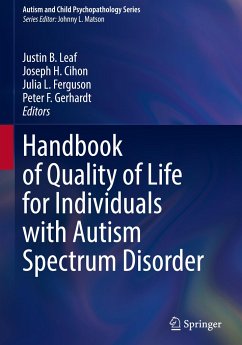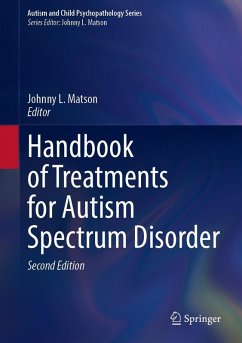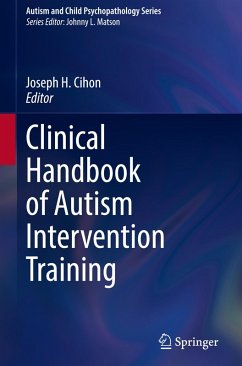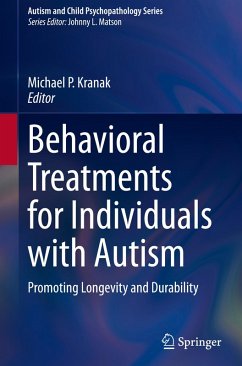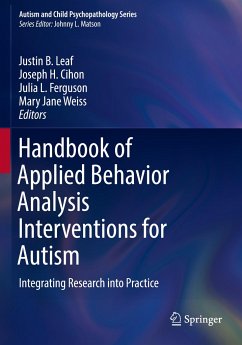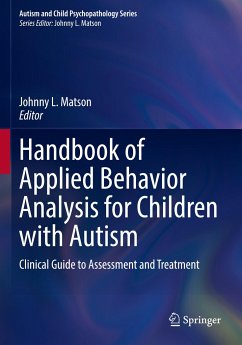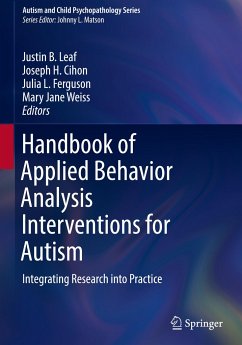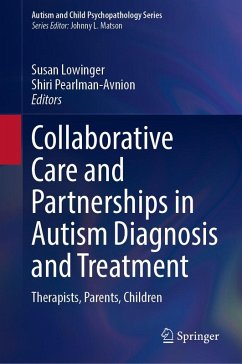
Handbook of Early Intervention for Autism Spectrum Disorders
Research, Policy, and Practice
Herausgegeben: Dixon, Dennis R.; Sturmey, Peter; Matson, Johnny L.

PAYBACK Punkte
189 °P sammeln!
The Second Edition of this handbook provides significantly updated and expanded content and coverage, including new chapters on the changing epidemiology of autism spectrum disorder (ASD), measurement and assessment of problem behaviors, value-based care for ASD, conceptual foundations of evidence-based practices, the use of technology, and functional behavior assessment in ASD treatment. This unique volume addresses basic questions in salient detail, from epidemiology and diagnosis to guiding treatment decisions. In addition, it examines treatment delivery systems and new technologies to supp...
The Second Edition of this handbook provides significantly updated and expanded content and coverage, including new chapters on the changing epidemiology of autism spectrum disorder (ASD), measurement and assessment of problem behaviors, value-based care for ASD, conceptual foundations of evidence-based practices, the use of technology, and functional behavior assessment in ASD treatment. This unique volume addresses basic questions in salient detail, from epidemiology and diagnosis to guiding treatment decisions. In addition, it examines treatment delivery systems and new technologies to support individuals with ASD.
Key areas of coverage include:
History of the evolving diagnostic criteria for ASD. Early screening and diagnostic measures and practices. Ethics and economics of early intervention. Detailed descriptions of evidence-based practices in treating the behavioral deficits and excesses associated withASD. Interdisciplinary collaboration to address co-occurring conditions and treat the whole patient. Caregiver collaboration to foster treatment integrity and consistency to improve outcomes.
The Second Edition of the Handbook of Early Intervention for Autism Spectrum Disorders is a must-have comprehensive reference for researchers, professors, and graduate students as well as clinicians and other scientist-practitioners in clinical child, developmental, and school psychology, child and adolescent psychiatry, social work, public health, pediatric medicine, rehabilitation, and special education.
Key areas of coverage include:
History of the evolving diagnostic criteria for ASD. Early screening and diagnostic measures and practices. Ethics and economics of early intervention. Detailed descriptions of evidence-based practices in treating the behavioral deficits and excesses associated withASD. Interdisciplinary collaboration to address co-occurring conditions and treat the whole patient. Caregiver collaboration to foster treatment integrity and consistency to improve outcomes.
The Second Edition of the Handbook of Early Intervention for Autism Spectrum Disorders is a must-have comprehensive reference for researchers, professors, and graduate students as well as clinicians and other scientist-practitioners in clinical child, developmental, and school psychology, child and adolescent psychiatry, social work, public health, pediatric medicine, rehabilitation, and special education.






